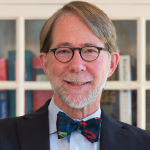
Lightspring / shutterstock.com
A key question many graduating rheumatology fellows face each year is: Are you interested in pursuing a career in academic medicine or in private practice? Although the two tracks are not mutually exclusive, it is true that juggling the demands of scholarly work, medical education and a busy clinical workload is by no means easy. Through the stories of several clinicians who have been successful in this balancing act, it is possible to see what career options are open to rheumatologists across the country and what lessons can be gleaned from their experiences.
Dr. Mease’s Story
Philip Mease, MD, a rheumatologist in practice at the Swedish Medical Center, Seattle, has an incredible story of coming into the research world somewhat later in his career. When he finished his rheumatology fellowship at the University of Washington in 1982, there was no such thing as a clinical track at his institution.
Although he had been involved in a fascinating case as a resident in which he and his team successfully used intravenous immunoglobulin to treat echovirus meningoencephalitis in a patient with dermatomyositis and X-linked agammaglobulinemia—which resulted in a publication in The New England Journal of Medicine1—his desire to practice clinical medicine and have a good work-life balance prompted Dr. Mease to join a multidisciplinary private practice. Indeed, he fondly recalls that his early career allowed for ample time spent with his family, including a day off each week simply to participate in activities with his children.
Several years later Dr. Mease was consulted for three patients with intense musculoskeletal pain and hypereosinophilia. One patient, a research nurse in a cancer center, had seen a bulletin from the Centers for Disease Control and Prevention (CDC) about patients with similar presentations who were all found to be taking a tryptophan-containing supplement. A new condition, called eosinophilia-myalgia syndrome linked to the ingestion of the dietary supplement L-tryptophan emerged, resulting in another publication for Dr. Mease and attention in the form of a widely viewed television interview.

Dr. Mease
Before long, Dr. Mease was approached by a pharmaceutical company that allowed him to help enroll patients in a clinical trial of infliximab and, later, to enroll patients in a trial of etanercept for the treatment of rheumatoid arthritis. Because he was also seeing patients with psoriatic arthritis and wondered about the potential efficacy of tumor necrosis factor inhibition in these patients, he wrote a two-page proposal to include these patients in an etanercept trial. The proposal was approved. He enrolled 60 patients, and this ended up being a successful trial published in The Lancet in July 2000.2
This was the beginning of what has become a substantial dual career for Dr. Mease as a private practice rheumatologist and one of the preeminent researchers in the field of spondyloarthritis, with more than 300 publications, many speaking engagements around the world, and the first Lifetime Achievement Award given to a rheumatologist by the National Psoriasis Foundation.
Dr. Mease points to a few key takeaways from his experiences. First, he notes that it is perfectly fine to come to research later in life, thereby allowing more time to spend with family early in one’s career. He explains that success in scholarship often involves a combination of serendipity, personal agency and industriousness. He also notes the importance of collaboration with like-minded individuals around the world, which has made much of his work possible and is even more essential during the current COVID-19 pandemic.
He points out that young rheumatologists should not be discouraged by the daunting challenge of how they will cover all financial aspects of balancing clinical work, which is compensated, and academic work, which is typically uncompensated. Often, having the opportunity to make up funds by consulting on clinical trials and providing lectures for continuing medical education sessions can help fill financial gaps.
Lastly, Dr. Mease notes that rheumatologists, as a general rule, are inquisitive souls and intellectually curious, and the benefits of marrying the ability to see patients in a busy practice while continuing scholarship helps prevent burnout.

